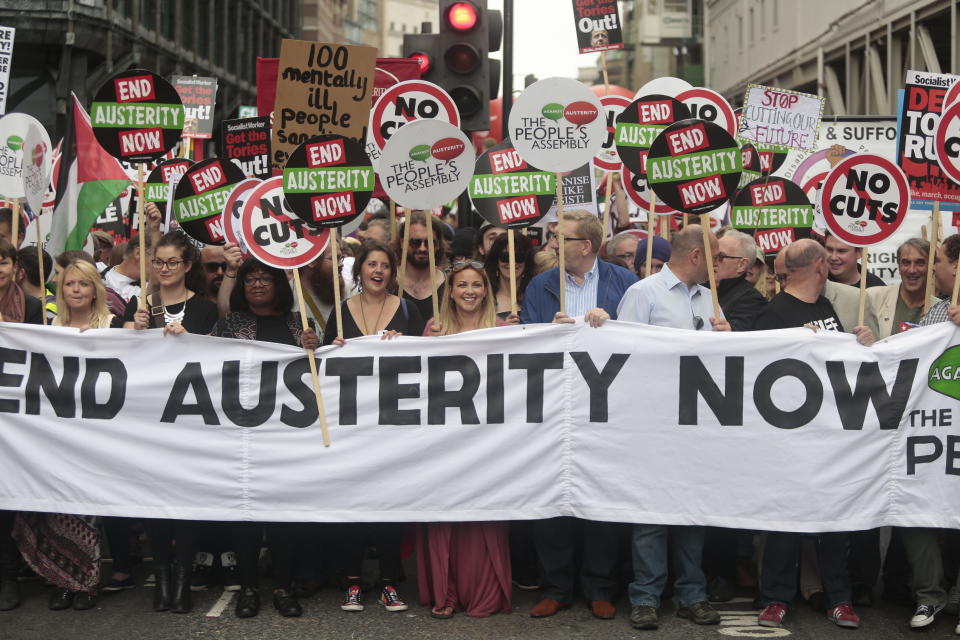Coronavirus: UK 'can afford higher debt' as economists warn over austerity

Britain can afford to sustain public debt levels larger than the entire UK economy and should not rush into spending cuts, according to a new paper.
UK government borrowing is soaring to fund emergency measures during the coronavirus crisis, designed to protect firms, jobs, frontline services and hard-hit households.
New forecasts suggest total debt could reach levels higher than analysis by the government’s Office for Budget Responsibility (OBR) suggested last month.
The Institute of Public Policy Research (IPPR) predicts a three-month lockdown would mean public debt peak at 120% of British GDP. A six-month lockdown could see it reach 130% of domestic output.
READ MORE: ‘Wartime level deficits’ as UK faces huge coronavirus bill
The Treasury reportedly floated plans for tax hikes and a public sector pay freeze last week in the aftermath of the crisis to bring debt levels down. Calls have also grown from right-leaning voices including former chancellor George Osborne for more spending cuts.
But Carsten Jung, a senior economist at the IPPR, said record low interest rates made higher levels of public debt far more manageable than in the past.
Even if rising inflation were to push up interest rates, the think tank’s report said it would take some time to feed through into higher debt servicing costs.
“Interest rates are currently so low that even a doubling of the UK’s debt would still mean the Treasury pays less to service this debt, as a share of tax receipts, than almost any time since 1950,” said Jung.
READ MORE: UK could face tax hikes amid fears of 'biggest deficit in history'
“The government should do what it takes to kickstart the economy and not jump to debt-reduction mode. Smart tax reform, alongside investment in infrastructure, high-quality public services and the green transition, can help the UK grow out of its debt in the medium term.”
Prime minister Boris Johnson is also reported to have told Conservative MPs austerity cuts and public pay freezes were not on the cards.

 Yahoo Finance
Yahoo Finance 